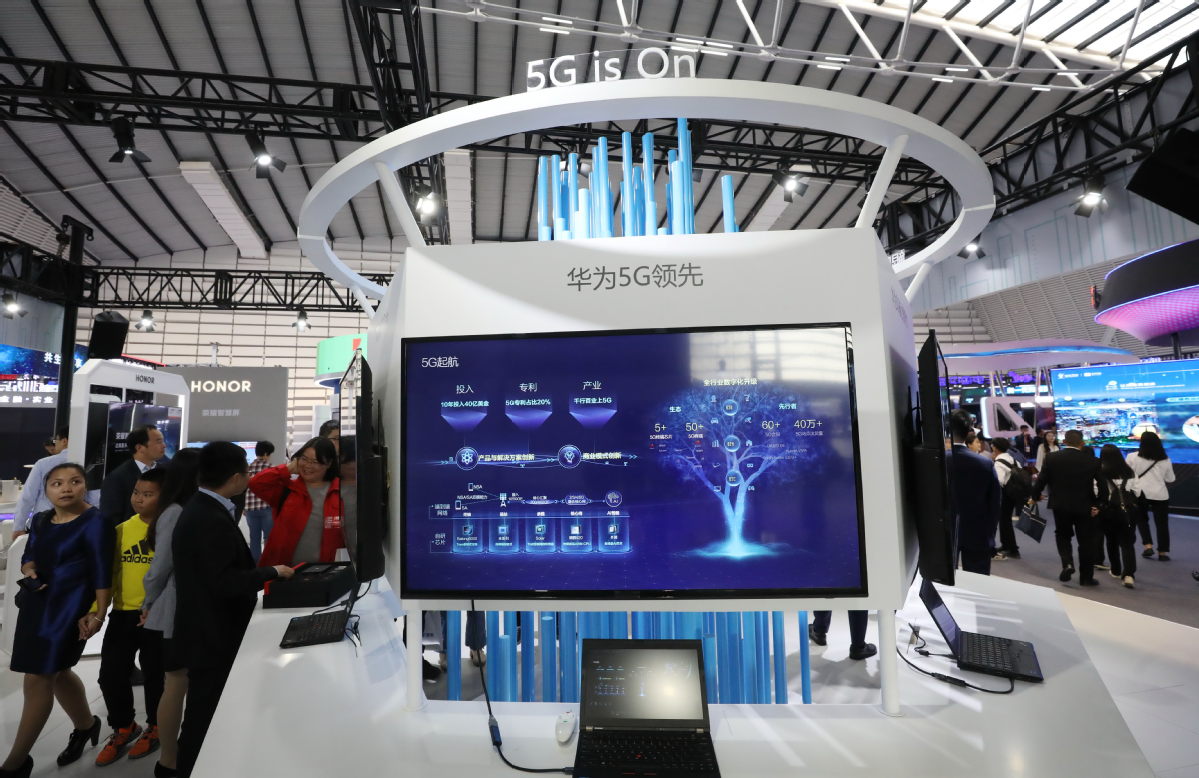Chinese high-tech helps world combat pandemic


Domestic companies' expertise in artificial intelligence, 5G and cloud computing strengthens many nations' efforts to save lives
As the novel coronavirus outbreak affects people's lives and work around the world, a post by Otto Sonnenholzner, vice-president of Ecuador, recently caught the attention of many.
Sonnenholzner said in a Twitter post that Ecuador became the first country in Latin America to have an artificial-intelligence-enabled auxiliary diagnostic system in two local hospitals.
The move is significant, because AI diagnostic systems can help doctors make faster, more accurate decisions on whether patients are infected by deadly viruses, thus reducing the heavy burden on frontline healthcare workers.
The AI-system is offered by Huawei Cloud, the cloud computing unit of Chinese tech giant Huawei Technologies Co, and its partner-Beijing-based AI company Huiying Medical Technology Co Ltd.
Zheng Yelai, president of Huawei Cloud, said it took only 14 hours for Huawei and Huiying to connect the AI-enabled system to a hospital in Ecuador. Hospitals in dozens of countries are also contacting Huawei Cloud for possible cooperation.
The move is part of broader efforts by Chinese companies to leverage their technological prowess to help foreign nations in the global battle against the pandemic, as confirmed cases of the deadly virus surge overseas.
From AI and 5G to cloud computing, Chinese companies-which have just emerged from the most difficult period in their own battle against the contagion-have been standing with the world at a time when the pandemic is rapidly spreading worldwide.
They are sharing the experience they gathered when helping first contain the epidemic in China, and helping people better study and work at home during self-quarantine periods.
The AI-medical imaging evaluation system, for instance, has played an active part in China's efforts to control the outbreak.
Shi Yuxin, deputy head of the Shanghai Public Health Clinical Center, said in an earlier interview that computerized tomography imaging is an important tool in the diagnosis and treatment of the novel coronavirus.
AI-enabled systems can help classify pneumonia caused by the virus according to its severity, and calculate its burden on people's lungs. Traditional quantitative analysis performed without AI usually requires up to six hours. But AI systems are able to perform the same task within a minute, Shi said.
Huawei Pakistan has also donated a video conference system worth about $300,000 to the Ministry of National Health Services, Regulations and Coordination of Pakistan to help the country fight the contagion.
Chinese tech giant Lenovo Group Ltd is also scrambling to do what it can to help countries combat the virus.
Yang Yuanqing, chairman and CEO of Lenovo, said the company has donated computers to low-income families and local schools in countries such as India, Brazil and the United States, and Lenovo has provided solutions to support remote healthcare and online learning.
In Italy, the hardest-hit country in Europe, Lenovo made a charitable donation to the Luigi Sacco Hospital of Milan. The company aims to help treat the more critical among the COVID-19 patients, both on site and at other hospitals. In particular, this means acquiring resuscitation apparatus as well as ambulances and stretchers, setting up pediatric departments to treat children and enhancing emergency rooms.
Lenovo and Shenzhen, Guangdong province-based BGI Genomics are also collaborating with US chip giant Intel Corp to accelerate the analysis of genomic characteristics of the novel coronavirus.
Technology and life science healthcare experts from Intel and Lenovo are working together to support BGI researchers with the latest big data analytical technologies and computing resources so as to further advance the capabilities of its sequencing tools, and more effectively analyze the genomic characteristics of the virus.
Tong Fuyao, senior vice-president of Lenovo, said the struggle against the coronavirus outbreak has touched the hearts of the entire world. As the world's leading PC maker, Lenovo is committed to providing computing support for life science research.
"Experts in big data analytics and life sciences from Intel and Lenovo will integrate our resources and expertise to help address the critical challenges and drive the development of health and life sciences," Tong said.



































